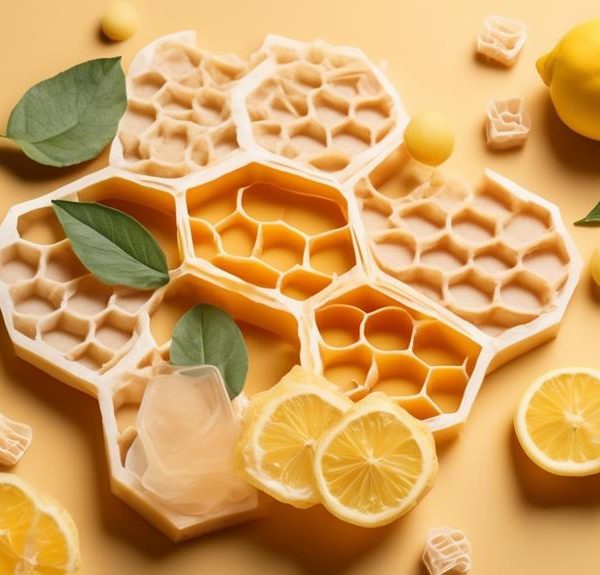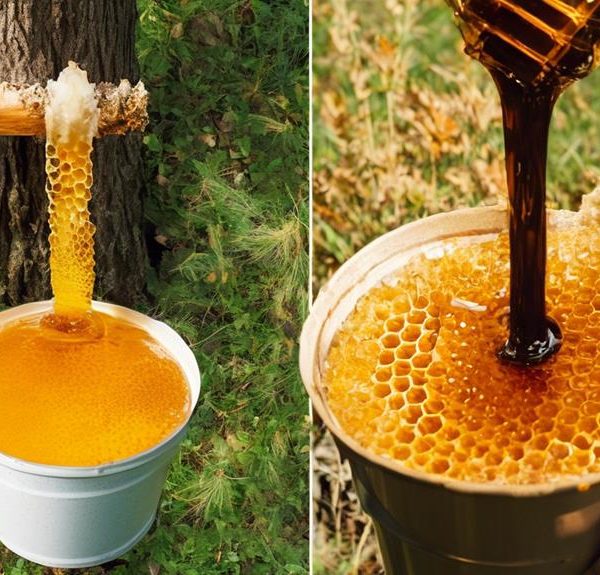Naturally sweet but are honey and maple syrup actually healthier than sugar? Explore the surprising truth to redefine your morning coffee ritual.
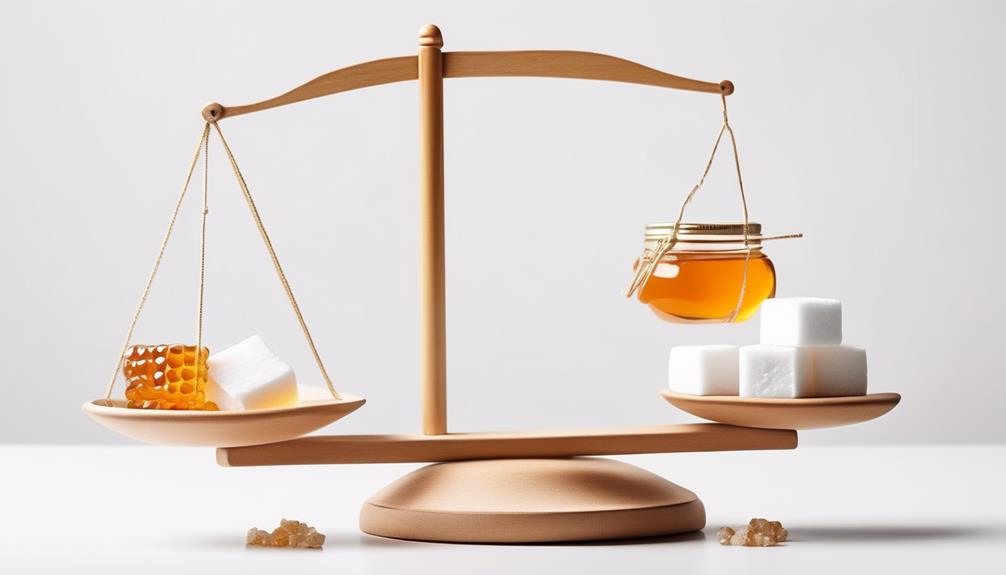
Are Honey and Maple Syrup Healthier Than Sugar
In a world where kale smoothies are the fountain of youth and quinoa, the elixir of life, you've probably found yourself wondering – are honey and maple syrup really healthier than sugar?
As you sift through the mountains of information available, it's easy to get overwhelmed. Sure, they're natural sweeteners, but does that truly make them a better choice?
You might be surprised to find out that the answer isn't as clear-cut as you'd think. Stick around, because the differences among these sweeteners are not only fascinating but could also reshape the way you sweeten your morning coffee.
Key Takeaways
- Honey and maple syrup contain antioxidants, vitamins, and minerals, offering more nutritional benefits compared to refined sugar.
- Both honey and maple syrup have lower glycemic indexes than sugar, making them better choices for managing blood sugar levels.
- Honey and maple syrup are less refined than sugar, providing a more natural and wholesome sweetening option.
- Moderation is crucial when consuming honey, maple syrup, or sugar to prevent health issues related to excessive fructose or sucrose intake.
Understanding the Basics of Sugar
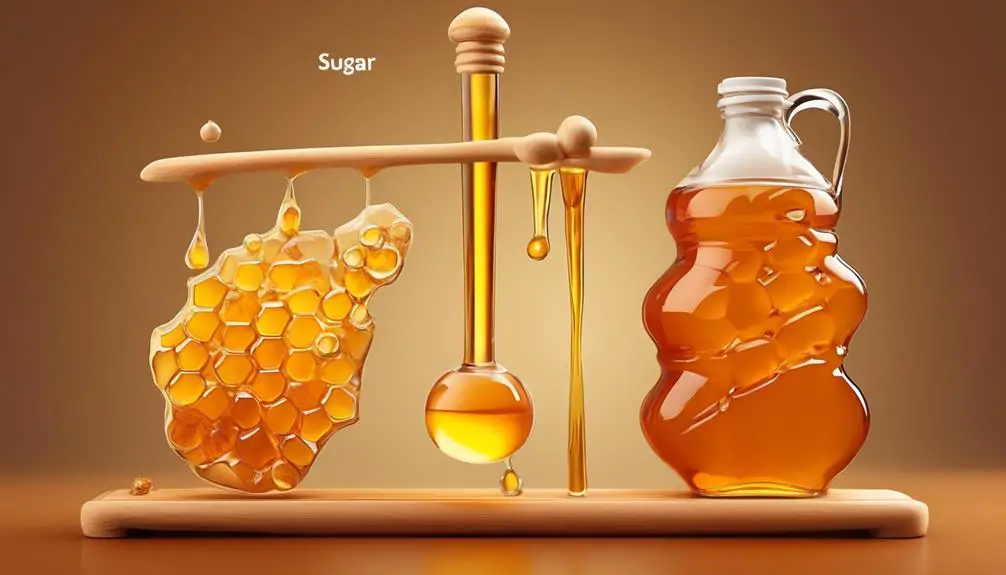
Before diving into the details, let's start with the basics: sugar is a simple carbohydrate that your body uses for energy. You find it naturally in all fruits and vegetables. However, it's often added to processed foods – from soda to bread – in its refined form. This type is what we commonly think of as table sugar, or sucrose.
Sucrose is made up of two smaller sugars – glucose and fructose. When you eat sucrose, your body breaks it down into these two components. Your cells use glucose directly for energy. Fructose, on the other hand, is metabolized in your liver. Consuming too much fructose can overload your liver, leading to health issues like obesity and type 2 diabetes.
Nutritional Value of Honey
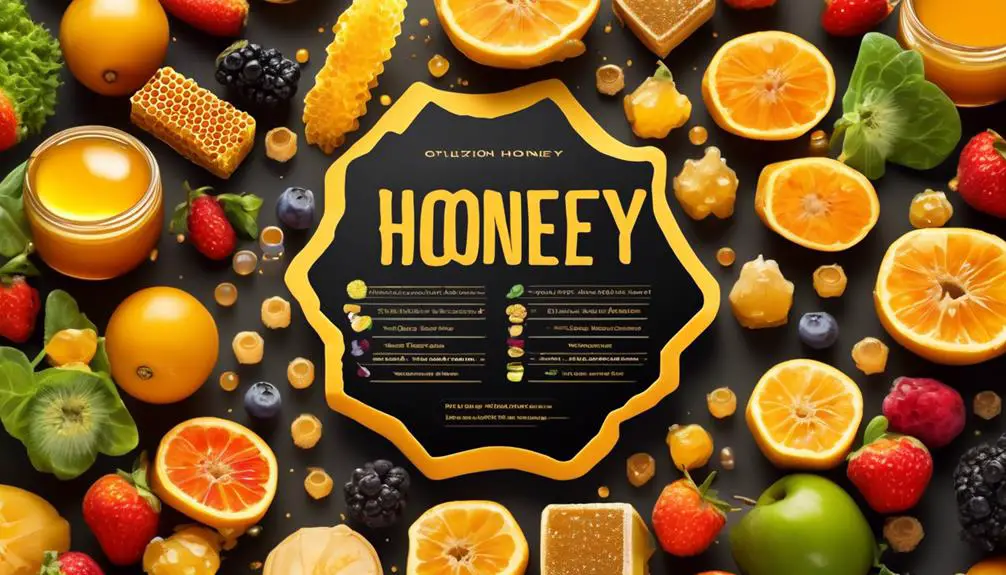
Diving into the sweet world of honey, you'll find it's more than just a natural sweetener – it's packed with numerous nutrients and health benefits that set it apart from traditional table sugar. For starters, honey is a rich source of antioxidants, including phenols, enzymes, and compounds like flavonoids and organic acids. These antioxidants work in tandem to combat free radicals, molecules that can damage cells and contribute to aging and diseases.
Moreover, honey provides trace amounts of vitamins and minerals. You'll find traces of vitamin C, calcium, iron, and even a little bit of protein in this golden delight. It's also a potent source of natural energy, thanks to its high carbohydrate content.
Honey is also noted for its antimicrobial properties. It contains an enzyme that produces hydrogen peroxide, which helps fight infections and heals wounds.
It's worth noting though, despite its health benefits, honey is high in calories and fructose, so it should be used sparingly. After all, it's still a form of sugar. So, while it's a healthier alternative to table sugar, remember to use it in moderation to maintain a balanced diet.
Health Benefits of Maple Syrup

Just like honey, maple syrup isn't merely a sweet topping for your pancakes; it too offers a myriad of health benefits that make it stand out from common table sugar. It's packed with antioxidants which help to reduce oxidative stress, a key factor in the development of chronic diseases. Moreover, it has a lower glycemic index than sugar, meaning it raises your blood sugar levels more slowly, an advantage if you're trying to manage your intake.
Maple syrup also contains numerous minerals and vitamins. These include manganese, which plays a vital role in bone health, and riboflavin that supports metabolic processes.
Here's a brief table to illustrate some of these benefits:
Nutrient | Benefit |
|---|---|
Antioxidants | Reduce oxidative stress |
Manganese | Supports bone health |
Riboflavin | Aids metabolism |
Comparing Sugar, Honey, and Maple Syrup
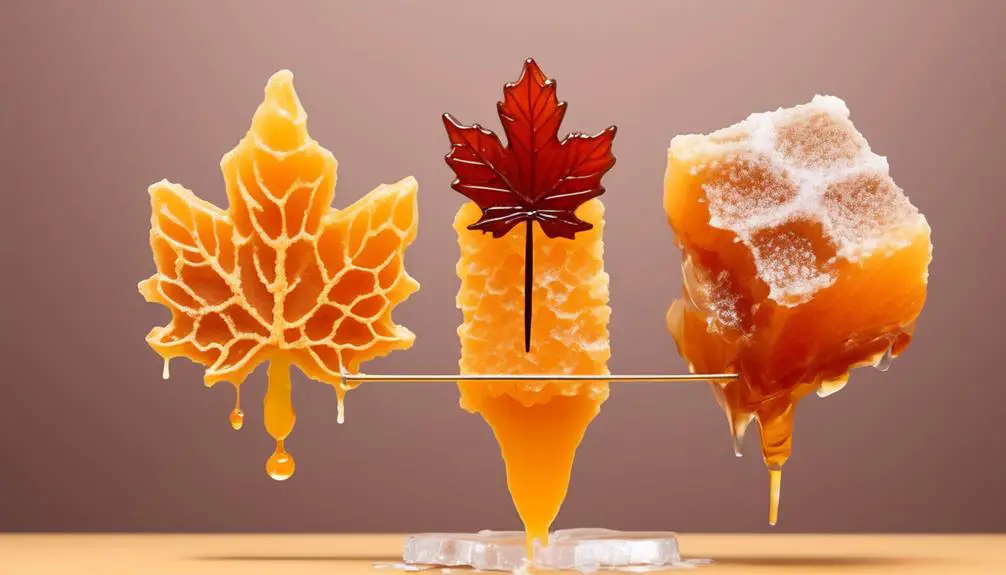
When it comes to sweetening your food or drink, understanding the differences between sugar, honey, and maple syrup can help you make a healthier choice. Sugar, the most common sweetener, is a simple carbohydrate that offers quick energy but little nutritional value. It's also linked to obesity, diabetes, and heart disease when consumed in excess.
Honey, on the other hand, is a natural sweetener that contains trace amounts of vitamins and minerals. It has a lower glycemic index than sugar, which means it doesn't raise your blood sugar levels as quickly. However, it's still high in calories and should be used sparingly.
Maple syrup is another natural sweetener that provides more nutrients than sugar, including antioxidants, zinc, and manganese. Like honey, it has a lower glycemic index than sugar, but it's also high in calories.
Making the Healthy Choice
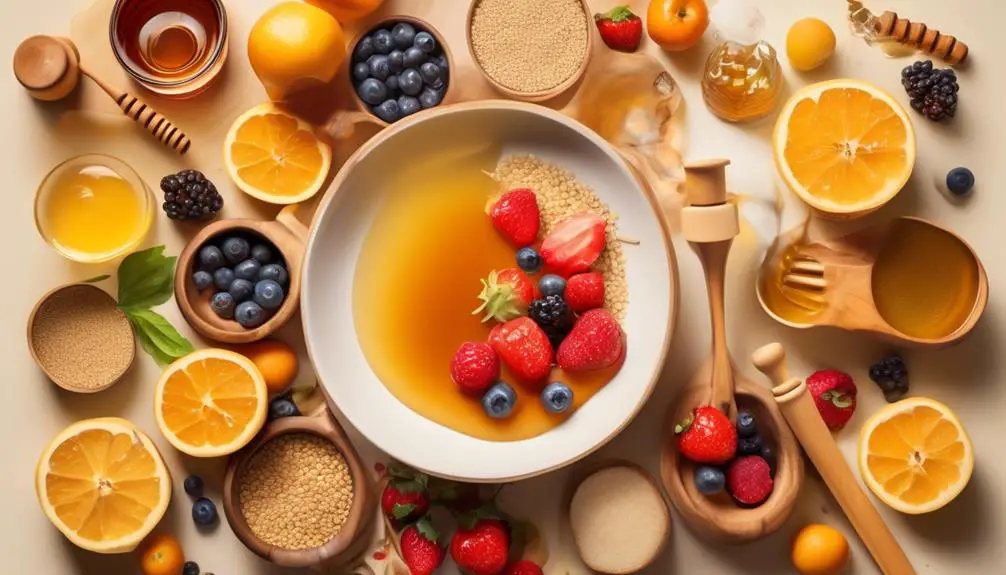
Now that you understand the differences between sugar, honey, and maple syrup, it's crucial to consider these factors when making a healthier choice. While all three sweeteners add calories and sugars to your diet, the key is to use them sparingly.
If you're seeking to minimize processed foods in your diet, honey and maple syrup are less refined than sugar. Both contain antioxidants and small amounts of vitamins and minerals. However, you shouldn't count on them as your sole nutritional sources.
Remember, honey is high in fructose, which can lead to health issues if consumed excessively. It's also unsafe for children under one year. Maple syrup, on the other hand, is high in sucrose and contains a moderate amount of fructose.
Refined sugar lacks nutritional value, contributes to weight gain, and increases the risk of heart diseases. Therefore, it's best to limit your intake, regardless of the type.
When deciding between honey, maple syrup, and sugar, consider your dietary needs, taste preferences, and health goals. Ultimately, moderation is key. Make informed choices and enjoy the sweet moments of life in a balanced and healthy way.
Conclusion
In the end, it's clear that honey and maple syrup pack a healthier punch than sugar. They provide more nutritional value and health benefits, including antioxidants and minerals.
However, remember they're still forms of sugar, and moderation is key. So, next time you're sweetening your coffee or drizzling on your pancakes, consider reaching for honey or maple syrup instead of sugar.
It's a simple swap that can make a significant difference in your health.

